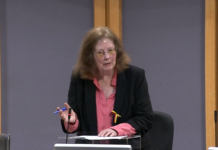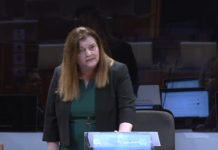Four out of five children feel that social media companies aren’t doing enough to protect them from pornography, self-harm, bullying, and hatred on their sites, NSPCC and O2 research has found.
Out of the 1,696 children and young people surveyed across the UK 1,380 said social media sites needed to do more to protect them from inappropriate or harmful content.
The latest Net Aware guide is the UK’s only parents’ guide to 39 of the most popular social media sites, apps, and games used by young people, produced by the NSPCC in partnership with O2.
It follows the most recent figures from Childline for Wales which showed that in 2015/16 the free helpline carried out 493 counselling sessions with children from Wales because of bullying, which includes online bullying.
In the same year, 85 counselling sessions about online sexual abuse – including sexting, being made to perform sex acts on webcam and viewing distressing sexually explicit content – were carried out with children in Wales.
When polled for the new Net Aware guide children rated ASKfm, Omegle, IMVU, and Facebook as some of the most risky sites, prompting the NSPCC and O2 to urge parents to look beyond the “big names” and find out about the lesser known apps their children are using.
A girl, aged 16, who reviewed ASKfm, said: “It had no strict controls which led to lots of hurtful messages being spread about people, which I believe contributed to people self-harming or just feeling negative about themselves.”
A 15-year-old girl who reviewed IMVU said: “There are some people on the site who are very unstable and vulnerable who are taken advantage of.”
The Net Aware guide also includes O2 Guru tips which show parents exactly how to help their child block or report someone who is targeting them.
Pokemon Go, Periscope, IMVU, and Live.ly are amongst the new apps to be featured on Net Aware, along with the more well-known sites including Facebook, Instagram, YouTube, and Twitter.
To inform the guide, the NSPCC consulted 1,696 children and young people and 674 parents and guardians.
Despite the risks that many children reported, 87 per cent (1,470) of young people asked said they knew how to keep themselves safe online. The NSPCC and O2 encouraged parents to visit Net Aware so that they could stay up to speed with apps and their safety issues so that they could help their child protect themselves online.
Des Mannion, head of NSPCC Cymru / Wales, said: “Social media is a great way for young people to stay in touch with their friends but our research clearly shows that children do not feel that they are shielded from upsetting, dangerous, and adult content. It’s vital parents know about their child’s online world and regularly talk with their children about how to get help if they need it.
“We all know that the internet develops at breakneck speed and it can feel nearly impossible to keep up with all of the constantly changing sites, games, and apps that young people use. Net Aware does all the work for parents by updating them with information, risks, and issues on sites their children are using.
“Rather than trying to work out which app is trending or hearing second hand about which site poses a risk, parents can turn to the Net Aware hub for all the information, support, and advice they need to help keep their children safe online.”
Nina Bibby, Chief Marketing Officer at O2, said: “Young people today are a generation of digital natives and, whilst many of them have grown up knowing how to use the many different websites, apps and games on offer, it can often prove more daunting for their parents to keep up with them.
“The Net Aware guide helps parents and guardians get up to speed, giving them the knowledge and advice they need to help their kids stay safe online.
“Technology provides a world of opportunities, and at O2 we want to make it as easy as possible for parents to help their children safely make the most of all it has to offer.”
Help keep news FREE for our readers
Supporting your local community newspaper/online news outlet is crucial now more than ever. If you believe in independent journalism, then consider making a valuable contribution by making a one-time or monthly donation. We operate in rural areas where providing unbiased news can be challenging. Read More About Supporting The West Wales Chronicle






















